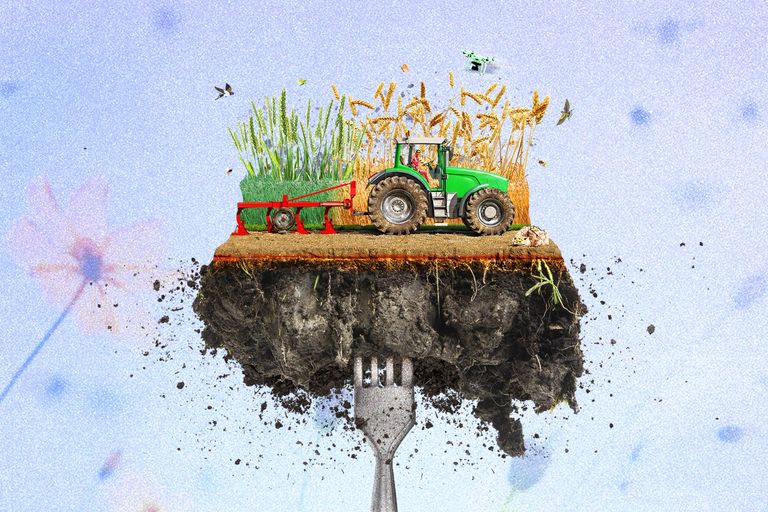Temi associati
Agriculture régénérative et réchauffement climatique
L’agriculture régénérative permet de freiner efficacement le réchauffement climatique mondial, à condition d’adapter sa mise en œuvre à chaque site. C’est ce qui a fait consensus parmi les intervenant·e·s issu·e·s de la politique, de l’administration, des ONG, de l’économie et de la science lors d’une manifestation publique.
Immagine: Andres Jordi
Agriculture régénérative : potentiel oui, quick fix non
Le consensus était étonnamment grand : l'« agriculture régénérative » a un potentiel considérable. Mais elle doit impérativement être mise en œuvre en fonction d’un site donné. Le panel largement représenté lors de la manifestation « Agriculture régénérative : une clé contre le réchauffement climatique ? » du 20 juin 2023 était d'accord sur ces points.
Immagine: EASAC
L’agriculture régénérative: la clé contre le réchauffement climatique?
L'agriculture régénérative désigne une agriculture qui met l'accent sur la régénération des sols et intègre les approches existantes de l'agriculture biologique. Elle améliore les sols, augmente la sécurité alimentaire et a un effet positif sur la conservation de la biodiversité et la régulation des inondations. Ces effets positifs sont essentiellement dus à l'enrichissement des sols en humus. Le potentiel en Suisse est très important : la teneur en humus des sols pourrait être augmentée de plus de 4% par an – dix fois plus que dans le contexte international – tout en conservant, voire en augmentant, les rendements. Comme l'humus stocke le CO2, l'agriculture régénérative atténue également le réchauffement climatique La conférence des Nations unies sur le climat de 2015 a donc désigné l'augmentation de la teneur en humus des sols comme l'une des six technologies dites à émissions négatives.
Immagine: EASAC
« Pour lutter contre le changement climatique, nous devons améliorer la qualité des sols, aussi en Suisse. »
09.11.2022 – Les sols stockent des quantités considérables de carbone sous forme d'humus. De nouvelles pratiques agricoles permettent d'augmenter la teneur en humus et de séquestrer ainsi de grandes quantités de CO2 dans le sol. De plus en plus d’acteurs reconnaissent ce potentiel et ses effets positifs multiples. Pour la mise en œuvre, outre le milieu agricole, tous les autres acteurs de la chaîne de production sont sollicités.
Immagine: zvg